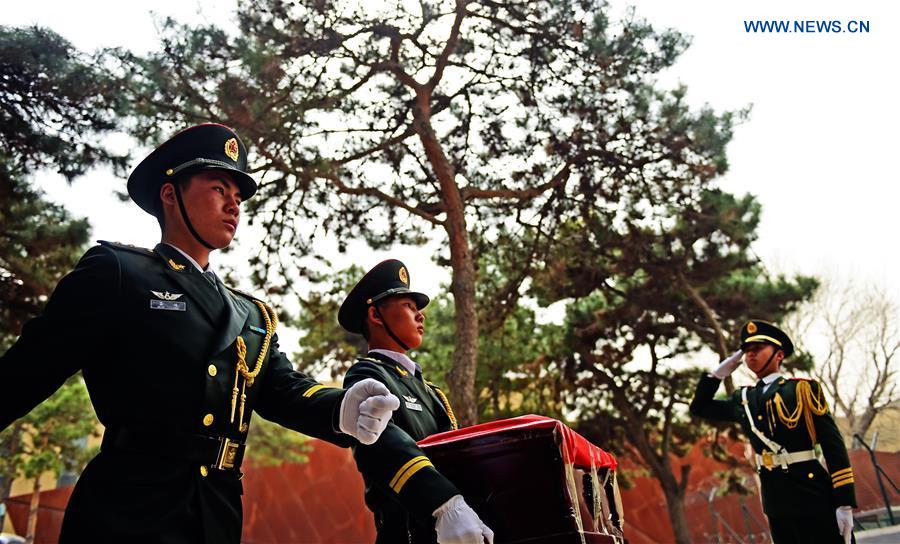As part of the consensus reached by China and South Korea in 2013, the remains of Chinese Volunteer soldiers who served in the Korean War will be returned to China before Tomb-Sweeping Day on a yearly basis.
Fighter jets escort the plane home. It carries the remains of 36 soldiers who crossed the Yalu River to the Korean Peninsula in 1950. They made the supreme sacrifice far from home.

SHENYANG, March 31, 2016 (Xinhua) -- Soldiers of the Chinese People's Liberation Army escort a coffin containing remains of a soldier of the Chinese People's Volunteers (CPV) killed in the Korean War, at a martyr cemetery in Shenyang, northeast China's Liaoning Province, March 31, 2016. The remains of 36 Chinese soldiers killed in the 1950-53 Korean War were returned to China on Thursday from the Republic of Korea (ROK), the third batch returned following a handover agreement signed by the two countries in 2013. Remains of a total number of 505 soldiers were returned to China in 2014 and 2015. (Xinhua/Yang Qing)
Between 1950 and 1953, more than 180 thousand Chinese volunteer soldiers fought alongside the DPRK and fell in the battle against troops from the South and the US. 6 decades after, these 36 fallen soldiers make an honorable return to home soil.
Coffins are handed to People's Liberation Army and the volunteers are home.
This is the third batch of remains returned since 2014. So far, a total of 541 bodies are finally resting in peace. They have all been buried at the Korean Martyrs' cemetery in Shenyang.
"Our brave soldiers fell in another countries for their families and relatives, their death has been a mystery. Finally they are home now," said Wang Liping, veteran.
Most of their identities are unknown. Scientists have worked to identify them by analyzing uniforms or ammunition, but often failed to put a name to the fallen soldiers.
But this doesn't stop the Chinese from honoring them.
"It's a shame that they are not here today to witness the tremendous economic and military developments China has achieved, if they do, they will be delighted," Wang said.
63 years since the armistice, the legacy of the war still hangs over the Korean Peninsula and still leaves a lasting impact on the region. The question is: if peace is worth dying for, shouldn't it be worth living for?















